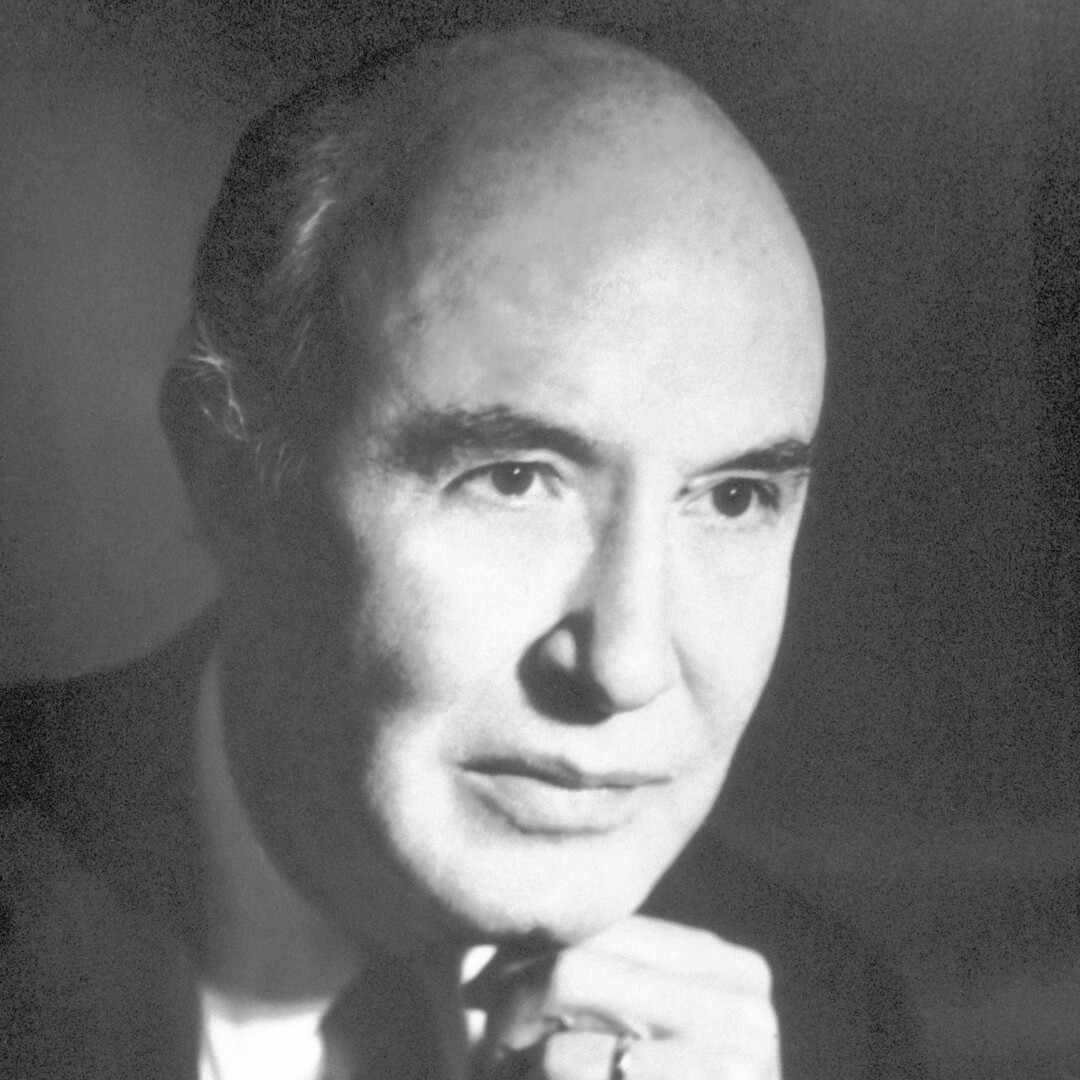Alfonso García Robles
Speed read
Alfonso García Robles was awarded the Nobel Peace Prize, jointly with Alva Myrdal, for their work for disarmament and nuclear-weapon-free zones.

Full name: Alfonso García Robles
Born: 20 March 1911, Zamora, Mexico
Died: 2 September 1991, Mexico City, Mexico
Date awarded: 13 October 1982
A denuclearised zone in Latin America
After graduating from the Hague Academy for International Law, Alfonso García Robles became a diplomat and had various roles at UN headquarters in New York. After the Cuban missile crisis in 1962, he played a key role in the painstaking efforts to make Latin America a nuclear-weapons-free zone. The result was a treaty signed by 14 countries in Mexico City in 1967. García Robles continued to work towards peace, helping to shape the nuclear non-proliferation treaty of 1968 and participating in UN special sessions on disarmament. García Robles was widely renowned for his diplomatic achievements, being celebrated as “Mr. Disarmament” on his final visit to UN headquarters. Latin America and the Caribbean are still free of nuclear weapons in 2011.
"Alfonso García Robles has rightly been called the father of the Mexico Agreement. It is his ideas and his realistic assessment that are reflected in the wording."
Chairman of the Norwegian Nobel Committee Egil Aarvik, Presentation speech, 10 December 1982.
The Tlatlelolco agreement (1967)
The treaty that García Robles worked so hard to achieve is known as the Treaty of Tlatlelolco, after the Aztec name of the Mexico City borough in which the Ministry of Foreign Affairs was located. The agreement making Latin America a nuclear-free zone was the first of its kind. The year after the Cuban missile crisis, García Robles convinced Mexican President Adolfo Mateos to spearhead the agreement process. The UN General Assembly endorsed the proceedings, and García Robles’ tireless efforts paid off in 1967. Twenty years later he was pleased to note that the treaty still served as an example and source of inspiration for others.
| Cuban missile crisis The crisis arose when the USA discovered that the Soviet Union was preparing to deploy nuclear weapons in Cuba in 1962. Under the threat of full-scale nuclear war, the Soviet Union halted the weapons deployment. |
"Nuclear-weapon-free zones constitute one of the most effective means of preventing the proliferation … of nuclear weapons and for contributing to the elimination of the danger of a nuclear holocaust."
From UN Resolution 3472 B, 11 December 1975.
Ambassador emeritus
The year before García Robles won the Nobel Peace Prize, he received the title “Ambassador Emeritus” from the Mexican Government for his diplomatic accomplishments in the wake of the signing of the Treaty of Tlatlelolco. At the UN, he is remembered in particular for the special sessions on disarmament in 1978 and 1982 where, with masterful dexterity, he managed to reconcile the suggestions and viewpoints of 149 participating countries in the first session. García Robles was 71 years old when he was named peace laureate, but he continued to campaign for peace for the rest of his life, travelling, lecturing, writing and representing Mexico in the UN.
"The Latin-American nuclear-weapon-free zone, which is now nearing completion, has become ... an example rich in inspiration to others, notwithstanding the different characteristics of each region. It provides profitable lessons for all States wishing to contribute to broadening the areas of the world from which nuclear weapons, those terrible instruments of mass destruction, will be forever proscribed."
García Robles: “The 20th Anniversary of the Treaty of Tlatlelolco”, 1987.
Learn more
Alfonso García Robles was born in Zamora in Mexico in 1911. After studying law he entered his country’s foreign service in 1939. From 1962 to 1964 he held the post of Ambassador to Brazil, and from 1964 to 1970 was State Secretary in the Ministry of Foreign Affairs ...
Disclaimer: Every effort has been made by the publisher to credit organisations and individuals with regard to the supply of photographs. Please notify the publishers regarding corrections.
Nobel Prizes and laureates
Six prizes were awarded for achievements that have conferred the greatest benefit to humankind. The 12 laureates' work and discoveries range from proteins' structures and machine learning to fighting for a world free of nuclear weapons.
See them all presented here.
